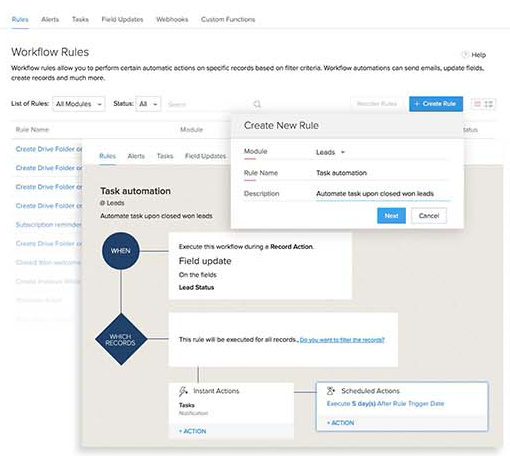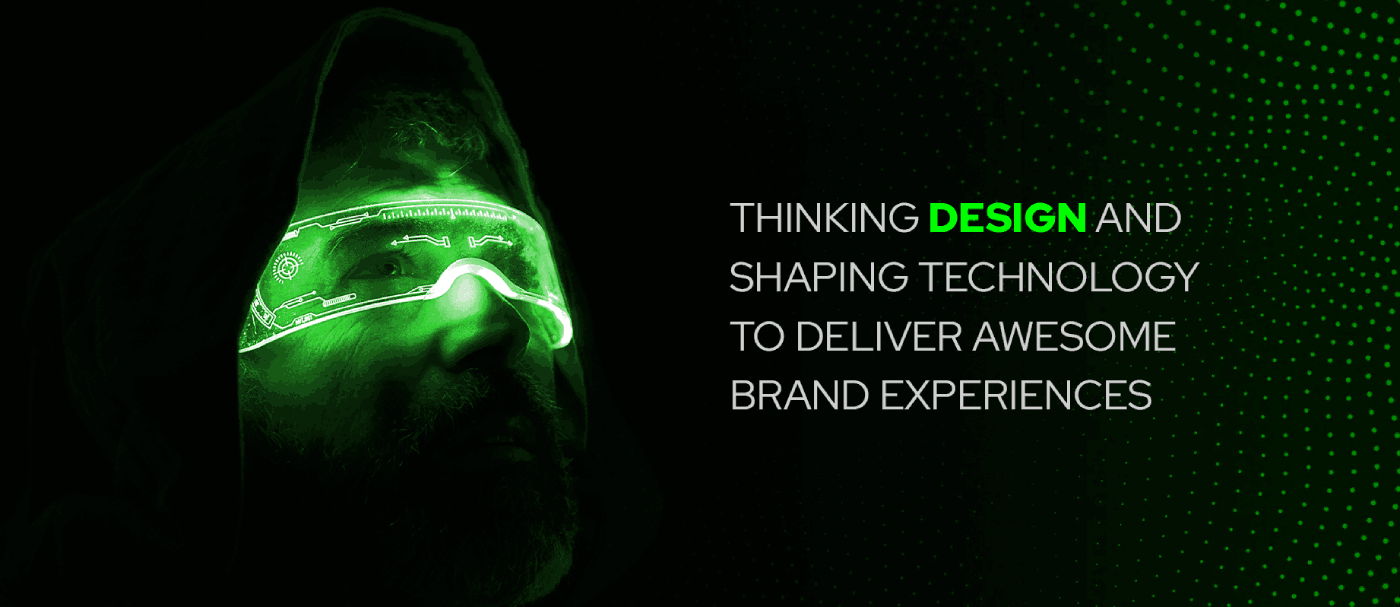
It's everywhere and nowhere when you
need it. You're not able to understand your
sales pipeline, the electiveness of your
marketing campaigns and most importantly,
the buying preferences of your customers.
Your teams are never on the same page.
They have a different perspectives on
customer accounts. Their interactions
cannot be monitored.
Your customers get different messages
from various team members on products,
promotions and grievance redressals
because you can't track where the problem
is in the organization.
74% of businesses say CRM software gave them better
access to customer data
60% of businesses say their productivity improved
by using a CRM software
The quality of communication among reps can increase
by 57% by using CRM technology

Customer data belongs to the entire company and is not owned by a particular individual or team. CRM software allows you to keep all customer data in one place, making it easy to access and update. This
helps you to have a more complete
understanding of your customers and their
preferences
With CRM software, you can track customer interactions, such as phone calls, emails, and chats. This helps to ensure that customers are receiving consistent, high-quality communication from the company
CRM software can automate sales and marketing processes, such as lead scoring, email marketing, and sales forecasting. This helps you to optimize their sales and marketing e!orts, while also improving customer experiences
By streamlining processes and automating tasks, CRM software can help you to operate more efficiently. This can result in cost savings and improved productivity. The impact of Improved efficiency is related to the ROI of CRM software
With a CRM platform, you can track customer issues and resolve them quickly. This helps to improve customer satisfaction and retention.
A higher CLV (Customer Lifetime Value) makes the company financially sustainable
The CRM software implementation process involves careful planning,
configuration, testing, and training to ensure that the platform meets the
organization's needs and is adopted effectively by users. It's important to
involve stakeholders throughout the process and to provide ongoing support
to ensure that the platform continues to meet the organization's evolving
needs. Our process involves –
The first step is to clearly define the goals and requirements of the CRM software implementation. This involves identifying the key business processes that will be supported by the platform, as well as the specific features and functionality that are required.
Once the goals and requirements have been defined, the next step is to identify the right modules in the platform that meets those needs. There may be a customization or development effort involved. This involves evaluating different options based on factors such as functionality, ease of use, and cost Plan the implementation.
The next step is to plan the implementation process. This involves creating a project plan that outlines the tasks, timelines, and resources required to implement the CRM platform. It may also involve identifying stakeholders, creating a communication plan, and developing training materials.
With the planning in place, the next step is to configure and customize the CRM software to meet the specific needs of the organization. This may involve setting up user accounts, defining workflows, and configuring integrations with other applications/systems.
Before going live, it's important to thoroughly test (among a set of users) the system to ensure that it is functioning and meets the organization's and the user's requirements.
Once the CRM platform has been tested, the next step is to train users on how to use the software. This may involve providing training materials, conducting training sessions, and providing ongoing support to help users get the most out of the CRM platform.
Finally, the CRM platform can be rolled out to users. This may involve a phased approach, with different groups of users being onboarded at different times. It's important to communicate the rollout plan and provide ongoing support to ensure a smooth transition.
By providing these services, we help companies to successfully implement and
adopt a CRM platform and ensure that they are able to realize the full benefits of
the system. We bring expertise, best practices, and a structured approach to the
implementation process, helping to ensure that the system is adopted effectively
and delivers the expected ROI. These services are -

We work with you to assess your business needs and
identify the features and functionality required from
CRM software. We identify the right modules of the
CRM platform that aligns with the processes, user
needs, and overall business goals. A comprehensive
project plan is shared with you that covers the timeline,
resources and estimated budget.

We will configure and customize the CRM software to meet the specific needs of the organization. This may involve setting up user accounts, defining workflows, and configuring integrations with other systems.
We provide custom development services to build additional features or functionality that are not available out-of-the-box in the CRM platform.
We integrate the CRM system with other apps, such as marketing automation or ERP systems, to ensure a seamless flow of data and processes

Adopting a new system or replacing a legacy one requires change management. We provide continuous training and support to ensure that users are able to use the system effectively and adopt it into their workflows. This may involve creating training materials, conducting training sessions, and providing ongoing support. Our CRM specialists also use tools such as emails, intranet and internal company events to educate users on the impact of CRM on their individual and team performance.

Optimization is an ongoing process, and post-implementation support is necessary to ensure uptime, frequent usage, data migration, and integration opportunities with other apps. Our CRM specialists administer, monitor and conduct periodic health checks. A help desk is set up for you to address user queries.

By using CRM software, FMCG companies can improve their overall
business performance, increase customer satisfaction, and drive
revenue growth. They can streamline their sales and marketing
activities, improve
customer engagement, and gain valuable
insights into customer behaviour and preferences. Overall, a CRM
platform can help FMCG companies to stay competitive in a
fast-paced and rapidly changing market
 >
>
By using a CRM system, real estate companies can improve their
overall sales and marketing processes, increase lead conversion rates,
and improve customer satisfaction. They can streamline their lead
and opportunity
management, automate their marketing efforts, and
gain valuable insights into their business performance. Overall, a CRM
system can help real estate companies to stay competitive in a highly
competitive market
and drive revenue growth.
 >
>
By using a CRM platform, Banks, Insurance companies, Home Finance
companies, and DSAs (Direct Selling Agents) can improve their overall
business performance, increase customer satisfaction, and drive
revenue growth. They can streamline their sales and marketing
activities, improve customer engagement, and gain valuable insights
into customer behaviour and preferences. Overall, CRM software can
help banks to stay competitive in a highly regulated and rapidly
changing market.
 >
>
By using a CRM system, automobile companies can improve their
overall sales and marketing processes, increase lead conversion rates,
and improve customer satisfaction. They can streamline their lead
and opportunity management, automate their marketing efforts, and
gain valuable insights into customer behaviour and buying
preferences.
 Authorized
Authorized Zoho CRM Plus enables your Sales,
Marketing and Customer Service
operations through a single platform.
Zoho CRM Plus is a Customer
Experience Platform.

Zoho CRM Plus allows your customers to reach out to
you through their preferred channels. You can -

Use workflows and automation to easily assign incoming
leads, trigger alerts and tasks and send emails.
Zia, Zoho's Al-powered assistant helps your sales,
marketing, and service teams spot customer sentiments,
auto-tag customer tickets, and helps support agents
frame better customer responses.
Explore from a range of 300 pre-set dashboards. See the
big picture that way your business needs to.
Fill in the form and we'll contact you shortly

